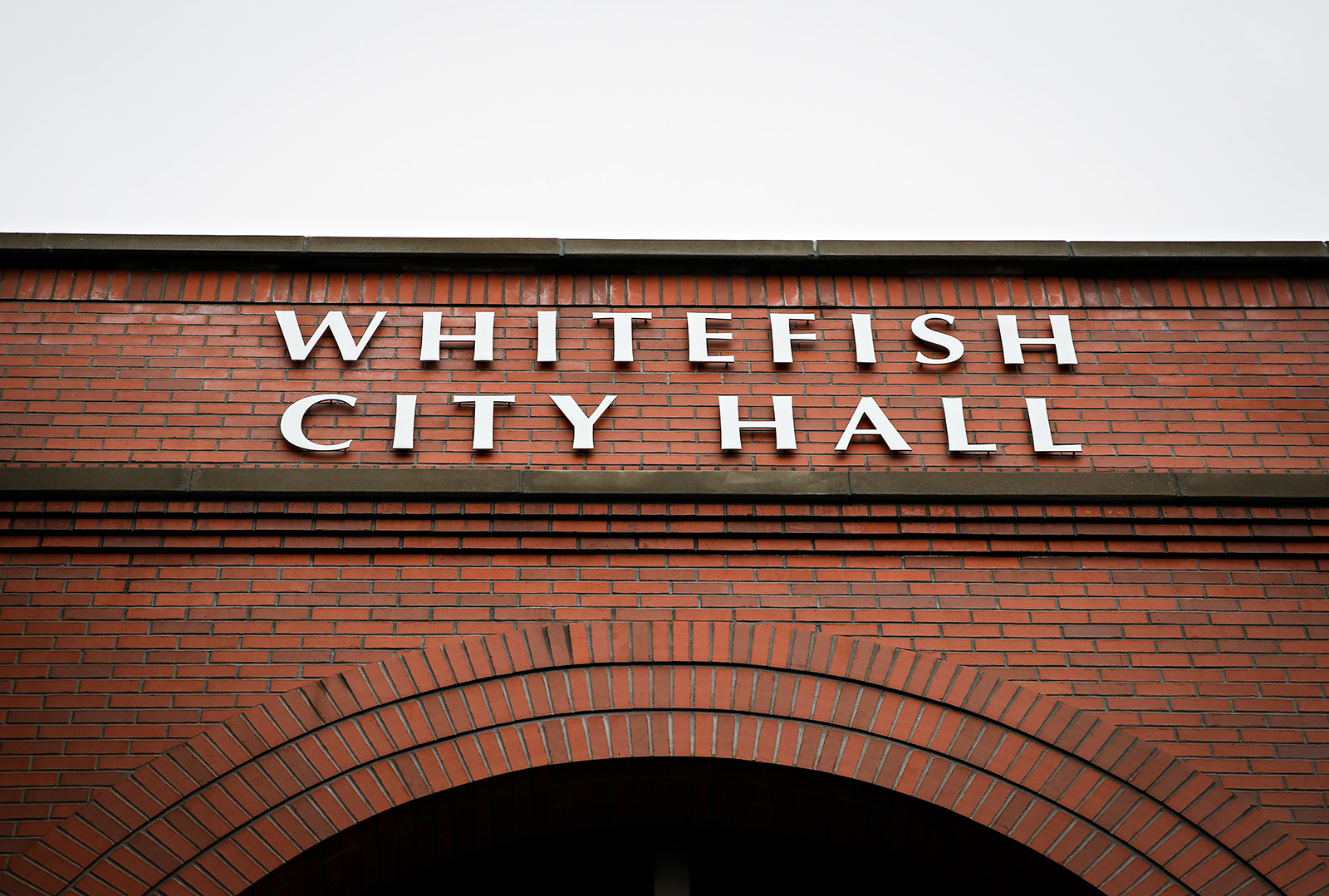The Whitefish City Council this week approved preliminary plans for a 29-lot subdivision off Highway 93 on a 13.45-acre parcel of land west of the Whitefish River.
The council voted unanimously in favor of the subdivision, although councilors Steve Qunell and Frank Sweeney were absent from the meeting.
Tracy Poole of True North Partners LLC is listed as the property owner and developer. The engineering firm Morrison-Maierle has provided technical assistance on the project. The subdivision will be located at 6335 Highway 93 S and will be west of the Dalen Dental Clinic and south of a Les Schwab Tire Center.
Called Snowy Mountain, the development will be bisected by extending Shiloh Avenue to the north until it connects to Whitefish Avenue. On the east side of that split, True North has proposed 24 lots for the construction of 48 townhomes. Lot sizes on the eastern portion of the property will range from .167 acres to .45 acres. The developer plans to dedicate 1.01 acres along the Whitefish River to parkland. The western portion of the property will be divided into five lots.
The land intended for the subdivision has had commercial use towards the highway, but has been undeveloped to the east and historically has been used for agriculture, according to a city staff report. The smaller, western portion of the property is zoned WB-2 (Secondary Business District), while the eastern portion is zoned WR-2 (Two-Family Residential District). The extension of Shiloh Avenue is planned to cut through the property where the zoning districts diverge.
Neighbors expressed some concerns with the plans to connect Whitefish Avenue and Shiloh Avenue, including increased traffic, the absence of a traffic light at Akers Avenue, tree retention on the northern portion of the property line, the density of the development, and access and development of a shared use path along the Whitefish River.
Whitefish Senior Planner Wendy Compton-Ring explained at the council meeting that the project does not ask for any variances, so it qualified for expedited review and thus arrived before the council with no planning board recommendation.
Based on a traffic impact study submitted with the development application, city staff report that the Shiloh Avenue connection to Whitefish Avenue will disperse traffic and improve traffic circulation in the area. The subdivision is expected to produce 653 vehicle trips a day. The staff report also found that part of the southeast corner of the land is within the floodplain, but notes that area is not proposed for development, and will be part of the dedicated parkland area.
City staff found the proposed development is in compliance with the city’s growth policy, as well as the Highway 93 South Corridor Plan and the 2022 Whitefish Transportation Plan. Previous iterations of the transportation plan going back to 1999 called for connecting Shiloh Avenue to Whitefish Avenue. City staff recommended conditional approval of the preliminary plat.
Among the conditions were that a tree preservation and retention plan be submitted. During discussion, Councilor Rebecca Norton outlined some of her concerns about potential erosion for lots on the eastern portion of the development. Before the council voted, Norton successfully amended the tree preservation and retention plan condition of approval to require that those plans be developed by an arborist.
During the hearing, Norton expressed concern about access from the development to the Whitefish River, noting the steepness of the slope, and the potential for erosion if the land isn’t hard-scaped. Norton also questioned if the developer could be asked to install steps in order to improve access.
Compton-Ring clarified that due to the nature of the application, and the fact that no variances were requested, the developer is only obligated to meet the minimum requirements for the parkland dedication component of the project, and so city officials can’t ask for things like improvement to parkland.
The developer is dedicating more than three times the amount of land they are required to, City Attorney Angela Jacobs said, adding that although the city can require land dedications, in this instance it can’t ask for improvements because of how the state subdivision regulations function.
Norton eventually directly asked the developer if they would be open to hardscaping an area leading down to the river. Poole, the developer, said that he was open to putting in steps or doing something to improve access.
